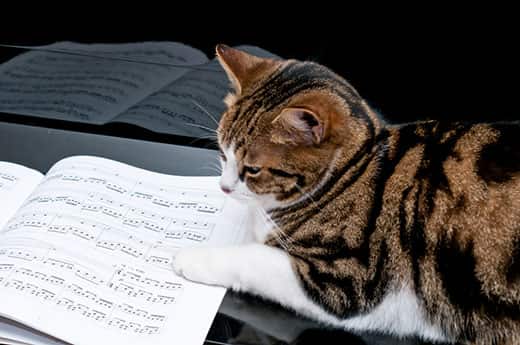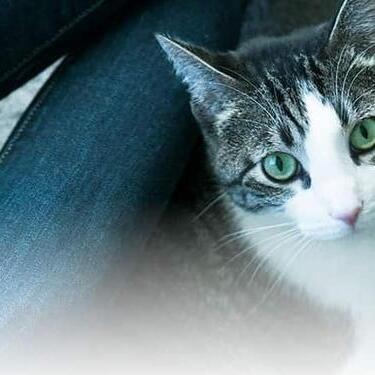
-
Find the right food for your pet
Take this quiz to see which food may be the best for your furry friend.
Find the right food for your pet
Take this quiz to see which food may be the best for your furry friend.
Featured products
 Adult Healthy Cuisine Roasted Chicken, Carrots & Spinach Stew Dog Food
Adult Healthy Cuisine Roasted Chicken, Carrots & Spinach Stew Dog FoodDelicious roasted chicken paired with tender vegetables in a succulent stew
Shop Now Small & Mini Savory Stew with Chicken & Vegetables Dog Food
Small & Mini Savory Stew with Chicken & Vegetables Dog FoodA delicious complement to the nutrition of Science Diet Small & Mini 7+ dog food
Shop Now Adult 7+ Perfect Digestion Chicken, Whole Oats & Brown Rice Recipe Dog Food
Adult 7+ Perfect Digestion Chicken, Whole Oats & Brown Rice Recipe Dog FoodScience Diet's breakthrough nutrition supports ultimate digestive well-being & healthy microbiome for dogs age 7+
Shop NowFeatured products
 Adult 7+ Tender Tuna Dinner Cat Food
Adult 7+ Tender Tuna Dinner Cat FoodWith delicious chunks in a decadent gravy
Shop Now Adult 7+ Senior Vitality Chicken & Vegetable Stew Cat Food
Adult 7+ Senior Vitality Chicken & Vegetable Stew Cat FoodImproves Everyday Ability to Get Up & Go
Shop Now Adult Savory Entrée Can Variety Pack Cat Food
Adult Savory Entrée Can Variety Pack Cat FoodPrecisely balanced nutrition with the delicious taste of savory minced chicken to help fuel the energy needs of cats during the prime of their life
Shop Now -
Dog
- Dog Tips & Articles
-
Health Category
- Weight
- Food & Environmental Sensitivities
- Urinary
- Digestive
- Joint
- Kidney
-
Life Stage
- Puppy Nutrition
- Adult Nutrition
- Senior Nutrition
Cat
- Cat Tips & Articles
-
Health Category
- Weight
- Skin & Food Sensitivities
- Urinary
- Digestive
- Kidney
-
Life Stage
- Kitten Nutrition
- Adult Nutrition
Featured articles
 Does My Pet Hate Me?
Does My Pet Hate Me?Learn tips for bonding with your pet if you've ever thought, 'My dog doesn't like me, or 'Why do I have a standoffish cat?'
Read More Do Dogs and Cats have Belly Buttons?
Do Dogs and Cats have Belly Buttons?Learn whether cats & dogs have belly buttons like humans, what the function is, and if there are any health concerns associated with it.
Read More Why Are Dogs and Cats So Cute?
Why Are Dogs and Cats So Cute?If waggy puppy dog tails and furry kitten yawns make you swoon, you're not alone. Why are cats so cute? And, dogs too! Let's find out!
Read More -


While playing tunes at home, you may wonder if cats like music? And if they do, what kind of music do cats like? Though you don't see your kitty tapping their paws to the beat, could they be enjoying the rhythm? Let's see what scientists and musicians have to say about the subject.
What Kind of Music Do Cats Like?
Do cats like music? The proof is in the purr. In the journal Applied Animal Behaviour Science, researchers concluded that cats do in fact dig music — as long as it's music they like. But what kind of music do cats like, and how do we know? After all, they can't tell us if they prefer a Mozart symphony to a Brahms.
David Teie, an accomplished cellist who's played with performers ranging from the National Symphony Orchestra to Metallica, composes music with tempos that mimic purrs, bird chirps and even nursing. He makes "species-appropriate music," which he fittingly calls Music for Cats. He gave his music to researchers to study and to test his theory that cats — especially young cats and kittens — strongly prefer species-appropriate music to music made for humans.

What does cat-specific music sound like? "In some tracks, sounds similar to the chirps of birds are overlaid with hurried streams of staccato for an energizing effect," reports The New York Times. "In others, crescendos of purring and suckling sounds are designed to relax."
Currently, music made specifically for cats is intended to soothe them, not to get them to dance. As Teie tells The Telegraph, this is partly because speakers "don't make noises which are high-pitched enough" to transmit more lively sounds that cats can hear. Cats are able to hear frequencies up to 64,000 hertz while humans can only hear frequencies between 20 and 20,000 hertz, according to the Journal of the American Holistic Veterinary Medical Association (JAHVMA). Put another way, cats will enjoy music that is in the frequency range with similar tempos to those used in cats' natural communication says Megan Savage and Charles Snowdon (psychologists at the University of Wisconsin) in a PBS article.
But how do these scientists determine that a cat actually likes this music? Researchers would notate how much cats would purr, rub against the speakers or orient their head and ears toward the music says Smithsonian Magazine.


Tasty Tips
Do Cats Like Music at Home?
While cats favor species-specific sounds, this doesn't mean that you should avoid playing human music for them. What's most important is the type of music you choose.
Dr. Susan Wagner, who specializes in music therapy for animals, outlines for JAHVMA a study in which classical, pop and rock music were played for 12 cats during spay procedures. The cats reacted most positively to classical music, followed by pop. Heavy metal, though, raised their heart rate and increased their pupil size; in other words, rock music stressed them out.
As for when to play music for your kitty, any time is a good time. If you choose to leave on your music player or TV while you're out of the house, stick with calming music. Cats of all ages will appreciate soothing sounds, whether classical music, nature sounds or music created specifically for them. Can playing music for kittens in the womb help with development, as it does for human babies? There's no scientific evidence to back it up, but it probably wouldn't hurt.
Curating a Cat Playlist
If you're interested in creating a playlist for your feline friend, take into consideration the sound frequencies cats prefer. Teie uses the cello, piano, flute and harp to create his music — instruments you'll find in the works of Tchaikovsky, Vivaldi and Puccini. All of these composers frequently appear on curated cat playlists.
If you're not a fan of classical music, look for other styles that appeal to you and your cat, such as New Age music or nature sounds. Kick back, turn up the tunes and relax with your furry pal.


Christine O'Brien is a writer, mom, and long-time cat parent whose two Russian Blues rule the house. Her work also appears in Care.com, What to Expect, and Fit Pregnancy, where she writes about pets, pregnancy, and family life. Find and follow her on Instagram and Twitter @brovelliobrien.
Related products

Supports energy level and beautiful fur in mature cats

Precisely balanced nutrition with the delicious taste of savory minced chicken to help fuel the energy needs of cats during the prime of their life

With delicious chunks in a decadent gravy

Improves Everyday Ability to Get Up & Go
Related articles

Discover which cat toys games your feline friend might like, and how they are great sources of exercise. Explore our library of articles to learn more.

Discover how to identify cat sensitive skin and what you can do to help your cat thrive from head to paw.

Discover the benefits of Hill's line of kitten foods and how they provide complete and balance nutrition for growing kittens.

Brushing your cat's teeth is just as important as brushing your own. Learn signs or oral health problems in your cat and how to avoid them.

Put your cat on a diet without them knowing
Our low calorie formula helps you control your cat's weight. It's packed with high-quality protein for building lean muscles, and made with purposeful ingredients for a flavorful, nutritious meal. Clinically proven antioxidants, Vitamin C+E, help promote a healthy immune system.
Put your cat on a diet without them knowing
Our low calorie formula helps you control your cat's weight. It's packed with high-quality protein for building lean muscles, and made with purposeful ingredients for a flavorful, nutritious meal. Clinically proven antioxidants, Vitamin C+E, help promote a healthy immune system.

